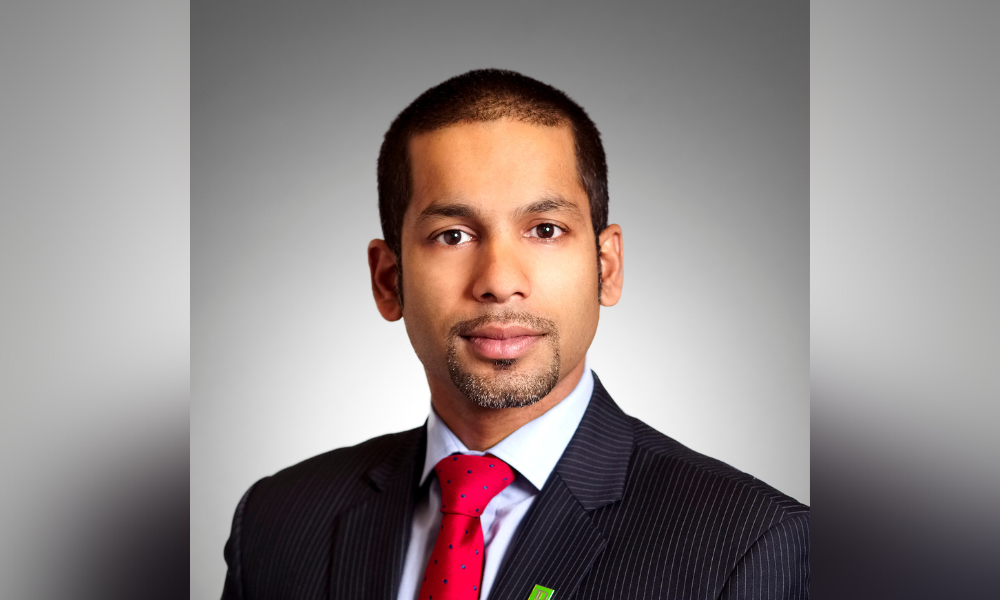Pessimism is rampant but advisor believes we may be in seventh or eighth inning of market cycle

We may be closing in on the end of the bear market, but it’s still a good time to reposition portfolios, says one portfolio manager.
“The stuff that got us into this bear market will be the stuff that gets us out,” Damian Fernandes, managing director and portfolio manager, TD Asset Management, told Wealth Professional.
Fernandes said the economic and policy conditions that created the bear market – exorbitant monetary and fiscal stimulus as a result of COVID, which have supercharged inflation – haven’t been seen since the late 1970s. So, he expects the central banks to remain hawkish for awhile.
“They will err on the side of over tightening – tightening too much – until they see the whites of inflation’s eyes is actually moderating,” he said, noting there’s been a very strong global reaction with central bankers raising rates at the fastest pace they have since the 1980s
He said most investors have not faced this before as the central banks struggle to contain inflation while courting recession, which has caused market volatility without a relief value for the markets.
“If you’re selling out right now, the horse has left the barn,” said Fernandes, noting most of this has already been internalized by the markets.
He said advisors should not sell flat out right now just because they’ve seen a fair degree of repricing, but he acknowledged everyone is currently bearish – and pessimistic. He said these conditions will not persist, even though this bear market is more traditional than the short one at the beginning of the COVID pandemic and more like the one during the European debt crisis in 2010 and 2011.
“It’s a much more deliberate and painstaking process to extract optimism out of the market,” said Fernandes. “But, I think we’re at that level right now, where there is no optimism in the market. There’s significant pessimism. But, if you ask me if you should be selling and running for the hills right now, I just don’t think we’re in an earthquake scenario because I don’t think that the conditions that got us here are permanent.”
Fernandes said the current painful conditions have been caused by the fiscal policy that is no longer taking place and also the geopolitical conflict, particularly Russia’s invasion of Ukraine, both of which are outside the system and will eventually be resolved. A lot of the current inflation is goods inflation with consumers wanting more than supply chains could provide, but most companies now have more inventory to provide the supply chains. Energy prices have also risen and fallen this fall.
He expects the central banks to reduce their hawkishness at some point next year as they tame some of the inflation, though he expects it will still be higher than pre-COVID. He expects it to settle in the 3% to 4% level, but certainly doesn’t expect interest rates to keep increasing.
“This year has been a place with no place to hide,” he said, with both bonds and equities being impacted, but he said the bear market to eventually end. “I don’t know when the bear market is going to end. We’re more than 10 months into this bear market. If we were thinking about baseball, we’d probably in the seventh or eighth inning. So, you could have a few good things coming your way and the market could easily move from here.”
He said balanced funds are really interesting right now because clients are being paid a yield on their fixed income component of them., which should provide some ballast and safety if the equity markets decline further, which he doesn’t expect.
Collectively, he said, society is slowly recovering from COVID, both physically with vaccines and the return to normal, but also the market also starting to do so, too.
Fernandes recommended that advisors hang on to their portfolios for a little longer since things could get a little worse before they get better. He also said: avoid the speculative tech stocks, aim for portfolio balance, and look at balanced funds. If clients have cash, add both equities and fixed income.
“If I’m the conventional financial advisor, I would be looking like I’m defensively positioned. I would be nibbling away both at equities and fixed income and balanced funds. I’d also want to own companies that are generating, and growing, cash flow today,” he said. “You need a measured approach.”



